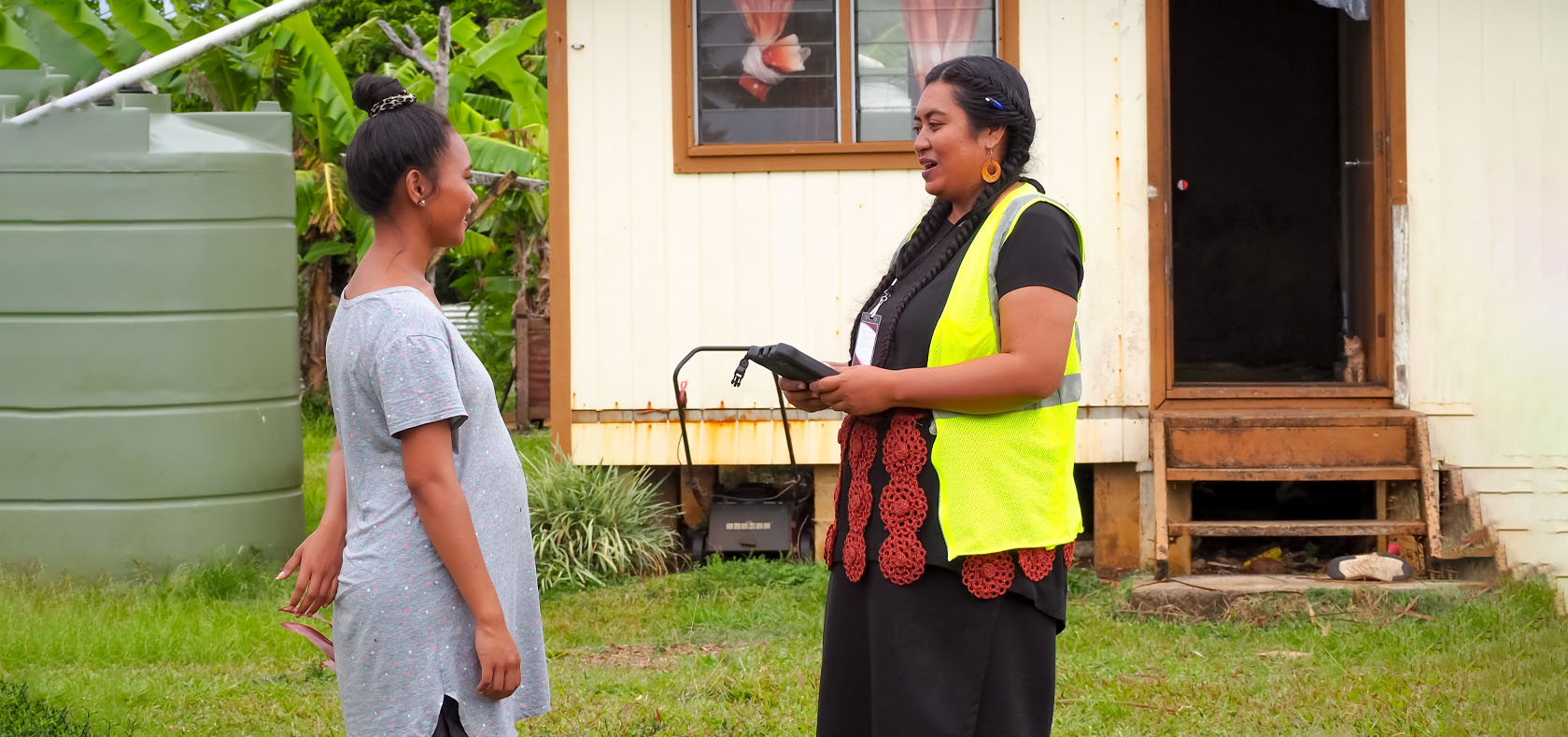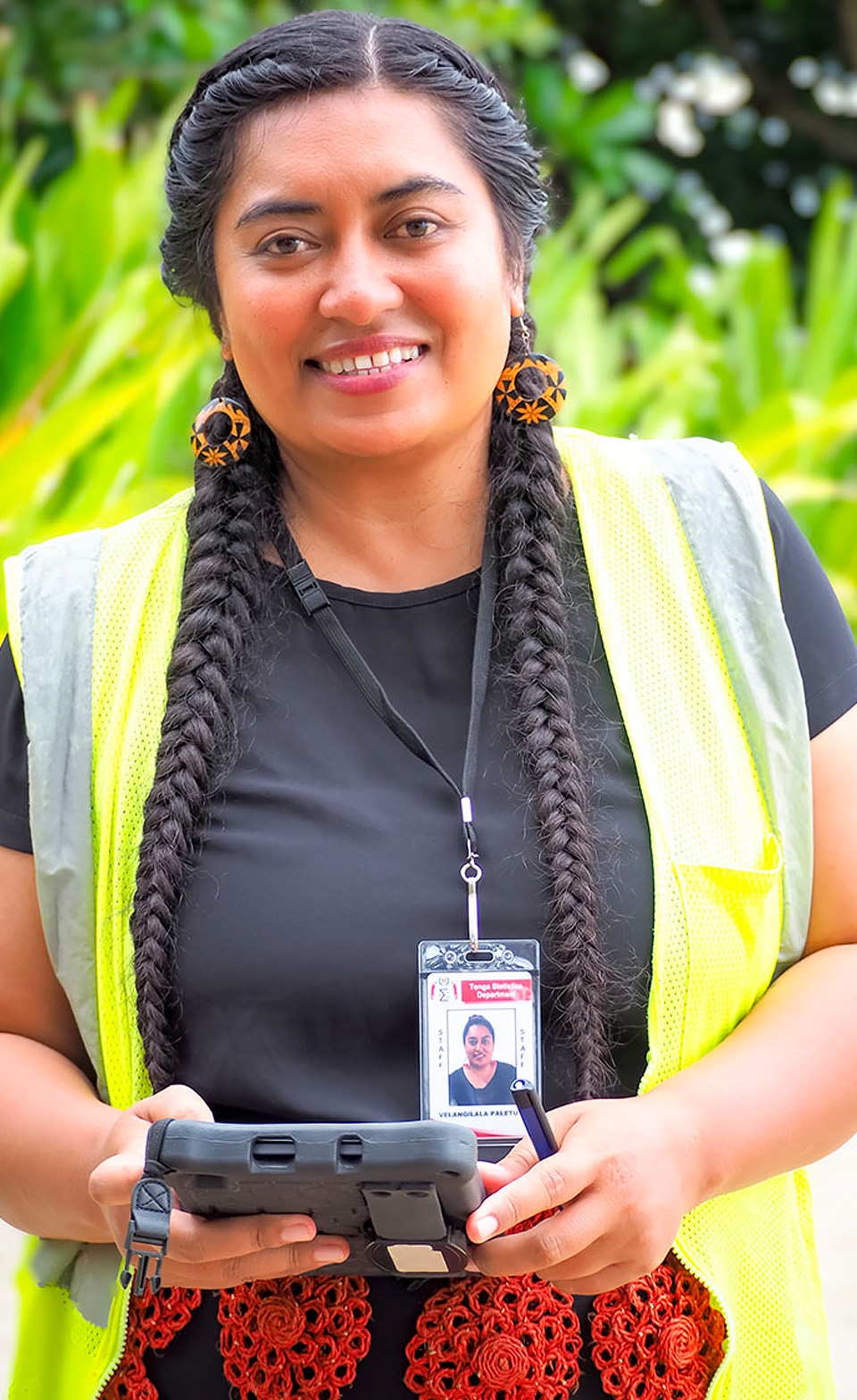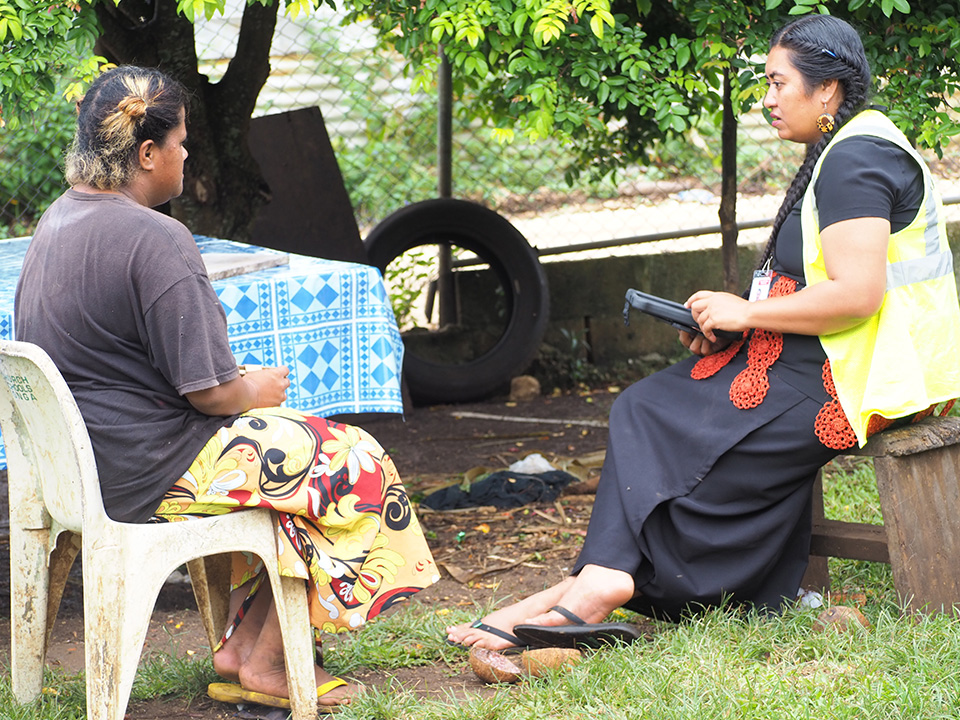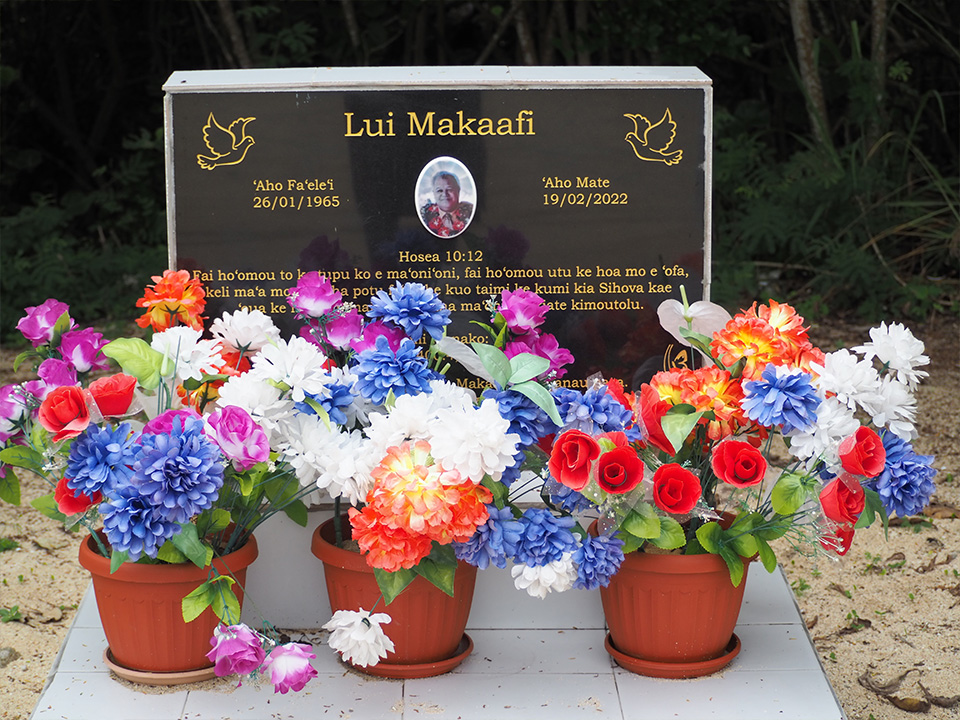Take Five: “Even though people on the island have hardship … they are ready to deal with future mishaps from climate change or natural disasters.”
Date:
Interviewer: Montira Narkvichien
Velangilala Paletu’a, 37, is among 27 enumerators of Tonga Statistics Department tasked with doing the first survey on gender and environment in Tonga from 31 October to 24 December 2022. Velangilala and three other enumerators surveyed 300 households on Ha’apai island, where she was born. Tonga was hit in January 2022 by a Tsunami caused by a volcanic eruption. The UN Women-supported survey detailed how women and men manage natural resources, deal with hazards and the consequences of climate change and conserve the environment. UN Women gave training to the enumerators on how to do the survey.




Please tell us about your experience at the training and the new methodologies that you learned.
We were getting familiarized with the questionnaires. … What I have learned new from the workshop is having the respondents from the households that we visit sign their signatures, to make sure that we visited them and that they responded.
Why is this survey important?
We have to capture the response of each individual respondent, male and female, to see how female and male household members respond to natural disasters and climate change, especially the chores that they do in preparation [for] future disasters. … I can understand how they are contributing to the family differently and how they differently experience the environmental that issues we are facing here on the island.
Climate change and environmental issues affect everyone’s life on this island. Some people mentioned experiencing about eight disasters in one year. What did you find unique in their responses on how they coped?
Most households that I visited, I have asked them about their mental health in the aftermath of the disasters within one year. They said they were not stressed as they were born on this island. Environmental disasters are something that they face frequently. … They plant, harvest and preserve food for any disaster that comes. We are talking about the resilience of having 72 hours of food, dried food and drinking water. Some families have two water tanks … for their family’s use before any help comes. Even though people on the island have hardship, the respondents say they are ready to deal with future mishaps from climate change or natural disasters.
How is this survey different from previous ones?
I come across families who are interested in the questions. … They said that it was very important to be reminded of the recent disaster and climate change incidents. The survey helped them remember to prepare themselves and to realize that they are helping the Government of Tonga, the policymakers, make better decisions for the future for the island and for the future of Tonga.
What are your hopes for the future of Tonga?
I hope for the policymakers to make better-informed decisions, especially those decisions that respond to climate change. … In the long run, another disaster will come where [we will have to undergo] another rebuilding. ... I am hoping that most homes on the island will be strongly rebuilt with help from the Government. The islands are resilient, but the houses need to be very strong to with stand the cyclones, Tsunami. We all should be able to face disasters and future environmental challenges.
UN Women is grateful to the government of Australia for their generous contribution to the Building Back Better project. The project supports the production and use of gender data on the Pacific and Southeast Asia.